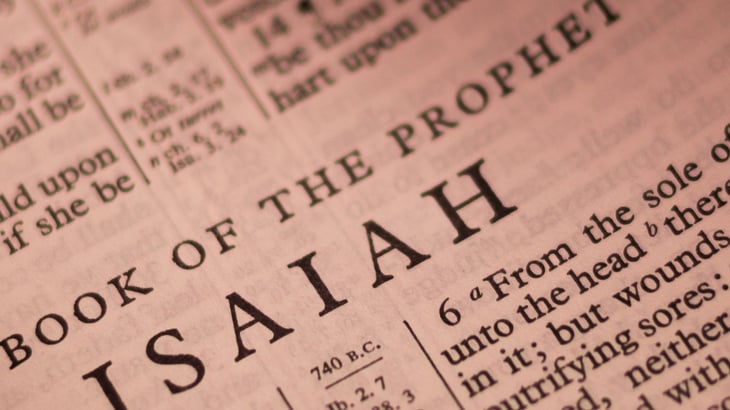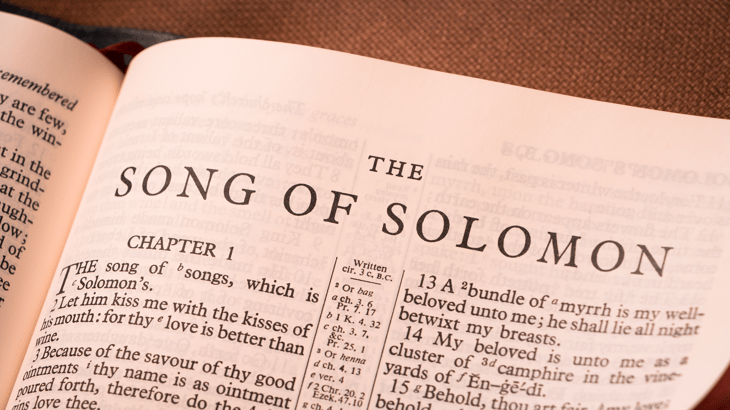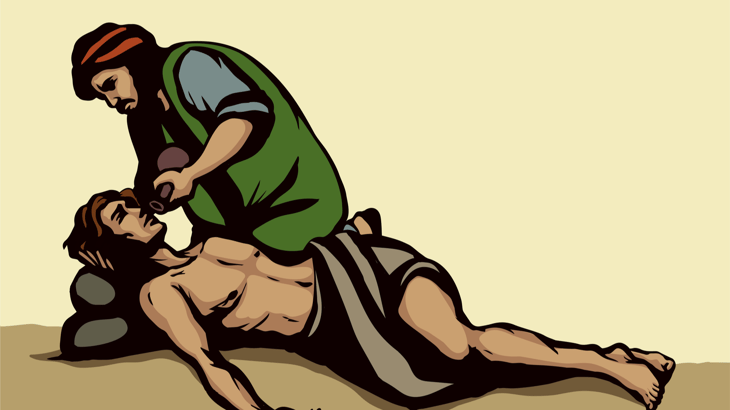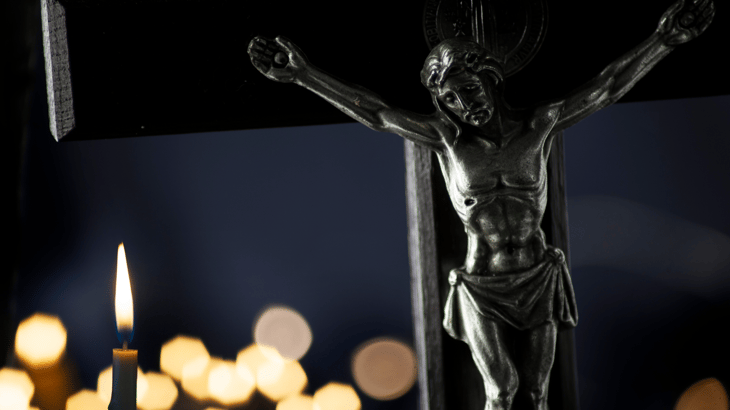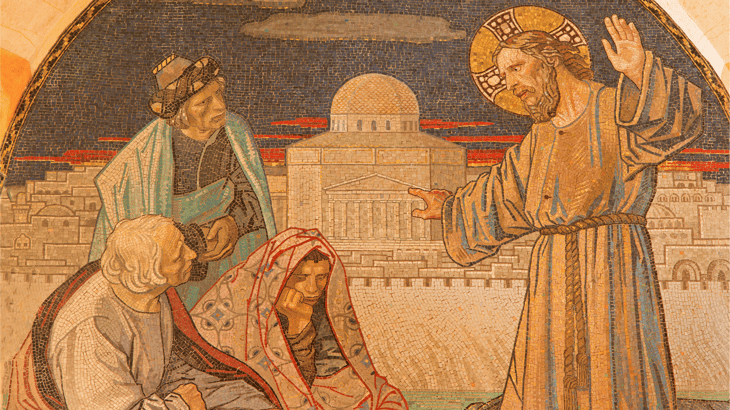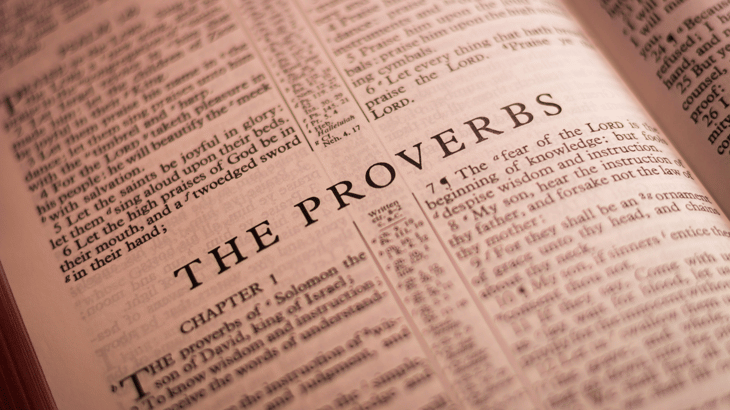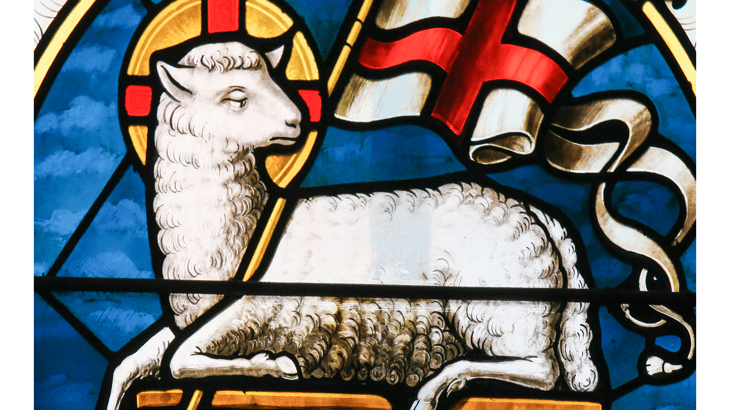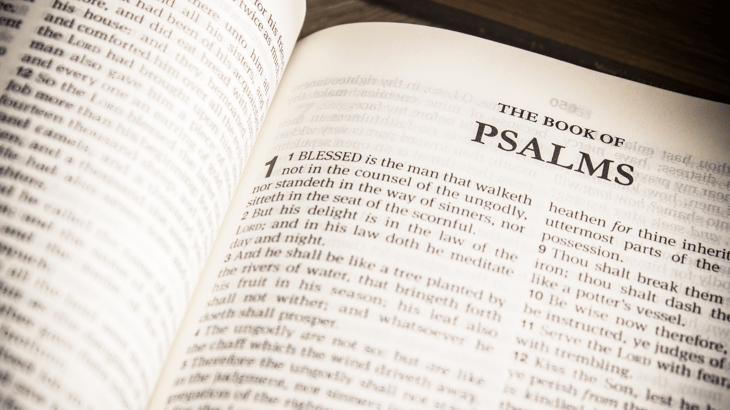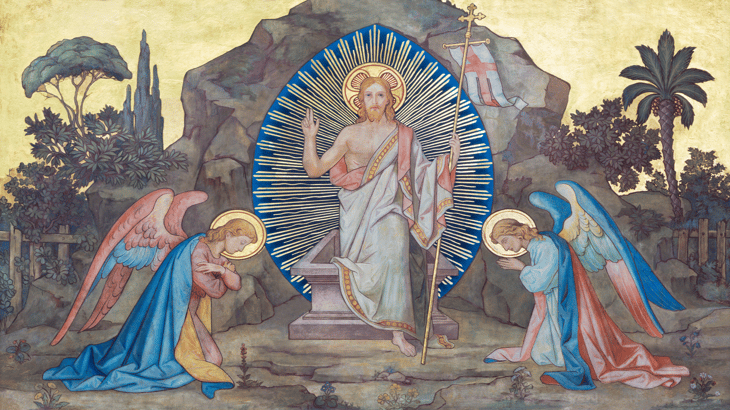An Overview of Isaiah
Isaiah wrote to warn the people of Judah to repent so that they might escape God’s judgment, poured out through the Assyrians. However, the range of his prophecies of judgment spread in all directions to include virtually all nations known to ancient Israel and, indeed, all people throughout the world. The universal scope of judgment in Isaiah’s prophecies is complemented with the good news of Zion’s redemption, which also becomes the means of salvation for all people.
Digging Deeper into Scripture: Luke 12:22–34
Anxiety can get the best of us, but even amidst our struggles, God promises to provide for all our needs. Read what Pastor Phil Rigdon has to say about the anxiety found in Luke 12:22–34.
Song of Solomon: An Overview
The Song of Solomon celebrates love, a common theme for all people of all times. What distinguishes the Song, however, is the way it connects human love to God’s greater love in poetry that mingles the earthly with the heavenly, the royal with the rural, and the ordinary with the eternal. In this selection, read an overview of the book and understand how the characters and narrative of the Song of Solomon point to God’s Gospel message.
This blog post is adapted from Lutheran Bible Companion, Volume 1: Introduction and Old Testament.
Digging Deeper into Scripture: Luke 10:25–37
Discover salvation and sin in the parable of the Good Samaritan with Pastor Phil Rigdon’s insight.
Opposing Ideas in Ecclesiastes: Justice and Mercy
When the book of Ecclesiastes highlights judgment, it can arouse questions about the apparent contradiction between the grief of Ecclesiastes and statements of abundant mercy elsewhere in the Bible. This excerpt from the Lutheran Bible Companion, Volume 1: Introduction and Old Testament provides clarity in understanding God’s character of both justice and mercy.
Digging Deeper into Scripture: John 8:48–59
Explore Christ’s great confession, “Before Abraham was, I am” (John 8:58), to the Pharisees and the highlights of John’s Greek with Rev. Phil Rigdon.
Proverbs: An Overview
Digging Deeper into Scripture: Revelation 21:1–7
Exploring the original Greek of Revelation 21, Pastor Rigdon shows us Christ’s words on the new heaven and the new earth promised to us in the last days.
The Psalms: An Overview
The Book of Psalms contains songs and prayers for every occasion. In fact, the Psalms collectively cover so much of the faith that they were rightly called a “little Bible” by the Church Fathers. This selection provides a summary of each of the 150 psalms, serving as both an overview of the Book of Psalms and a guide. The psalms are grouped by their traditional “books,” or series of Psalms, ending with a doxology.
Digging Deeper into Scripture: Luke 24:1–12
The resurrection of our Lord, despite the initial disbelief of the disciples, was no surprise. Rather, it was a promise repeated throughout the Old Testament and Christ’s own ministry. Best of all, this is just one of God’s many promises for you!
